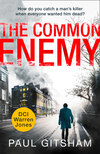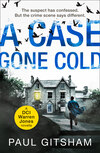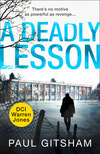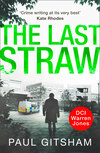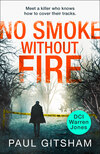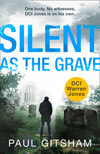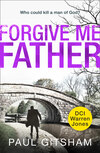Читать книгу: «The Common Enemy», страница 3
Chapter 4
Imam Danyal Mehmud’s eyes were bloodshot and the shaking of his hands attested to the adrenaline he was running on. Karen Hardwick and Tony Sutton were seated in the imam’s living room, two streets over from the remains of the community centre. The air in the street still smelled of smoke. The house was a two-bedroom affair with a modest front room whose walls were covered in a mixture of family pictures and framed scripture.
‘Is that the Frozen fan?’ Sutton nodded towards a picture of a smiling infant in a light summer dress. She hadn’t been smiling ten minutes ago when her father had switched the cartoon off and sent her upstairs so they could speak in peace.
‘Yes, that’s Fatima. If I hear “Let it Go” one more time… she’s obsessed.’
‘My niece is about the same age,’ said Hardwick. ‘At least choosing a birthday present was easy this year.’ She paused. ‘Is the little boy in the picture with her the other victim, Abbas?’ Both children were dark-haired, with light brown skin and faces smeared with ice cream.
‘Yes, they’re cousins. My sister’s little boy. They’re almost exactly the same age.’
‘So that means Mrs Fahmida must be your grandmother?’
Mehmud nodded sadly.
‘I’m very sorry, I had no idea.’
The man in front of them was in his late thirties, wearing a white dishdasha over his jeans and trainers. By all accounts he’d been awake for pretty much the entire past twenty-four hours, comforting his congregation and, Sutton now realised, dealing with his own shock and grief. He was clearly running on adrenaline and little else, given that he was still fasting during daylight hours to mark the Muslim holy month of Ramadan.
‘Have you heard anything more from the hospital?’ asked Hardwick.
Mehmud shrugged helplessly. ‘Nani is in intensive care. They aren’t very hopeful. Abbas is poorly but stable. We are praying for his recovery, inshallah.’
Mehmud stood up suddenly as if filled with an energy he didn’t know what to do with.
‘I haven’t told Fatima anything yet. I’ll wait to see what happens in the next twenty-four hours or so. If he… well, she’ll be devastated. My sister and I are very close and Fatima and Abbas are like brother and sister.’
‘I realise that it’s been a trying time but could you take me through what happened that day,’ asked Sutton after a respectful pause.
‘We knew all about the BAP march of course, but I’d tried to persuade people to keep their heads down and not get involved.’ Mehmud shrugged. ‘Not everyone listened. We found out that the BAP were due to arrive about midday. It was easy enough to find their plans on the internet. We’d spoken about it the day before at Friday prayers. We had a higher than usual attendance; there were some brothers and sisters that I didn’t recognise.’
‘People from outside Middlesbury?’ asked Hardwick.
‘I think so. Not many, but I got the feeling that they weren’t there by chance.’
‘You think they’d arrived specifically to join the counter-protest?’
‘Yes. I tried to counsel against it – the last thing we as a community need is to be involved in violence, especially with the planning hearing for the mosque and community centre coming soon.’
‘So what happened on Saturday?’
‘There was an informal gathering here after dawn prayers. Some of the more fiery members of the congregation wanted to take part in the protest marches. A few went off to join in, but most stuck around until midday prayers.’
‘What happened then?’
‘A few more went to the protest and about half went back to lock up their shops and businesses. In the end there were about thirty, mostly women and children, who chose to stay here. I decided to lead by example and stick around.’
‘Why did they stay?’ asked Hardwick.
‘They were scared. There were all sorts of rumours on the internet about Muslims being targeted on the street or having their houses vandalised. All nonsense, of course, but I decided that anybody who wanted to remain was welcome.’
He closed his eyes briefly. ‘They should have been safe here. We locked the doors and there was a police car outside.’ His voice cracked and his bottom lip started to tremble. ‘But they weren’t, were they? We were trapped like rats.’
‘Tell us what happened inside the centre.’
‘It was pretty tense. As the protests got more violent the BBC started to cover it and there was loads of activity on Twitter. We moved the older children upstairs with some toys and the rest of us stayed downstairs to watch the telly.’ His voice hardened, and for the first time an edge of anger crept into his tone. ‘We still thought we were safe. There was a police car up the street, and all of the action was happening in the town centre. Nobody told us the police car had…’ He stopped, unable to continue the sentence.
‘We haven’t been able to get inside the centre yet,’ said Sutton, ‘so you’ll have to help us with the layout. Where were you watching TV?’
‘In the kitchen area, out the back. As you enter through the front door there are shelves for footwear and some sinks for ablutions, straight on is the kitchen, to the left the musallah, the prayer hall.’
‘And where are the stairs?’
‘To the right of the entrance.’
‘And what do you have upstairs?’
‘There are several rooms. The largest is a function room, then there is a storeroom, some bathrooms and another couple of rooms that we use for wedding guests to get changed etc.’
‘Did you know everybody?’ asked Hardwick.
‘Yes, the visitors had all gone off to the march.’
‘Did you see anybody strange hanging around outside?’
‘There were a few brothers outside, but they left eventually.’
‘What do you mean by brothers?’ questioned Sutton.
‘Other Muslims.’
‘How did you know they were Muslims if you didn’t know them?’
Mehmud blinked. ‘Well, they were dressed in thawb with full beards and well, you know, they were Asian.’
Sutton decided to move on.
‘When did you realise the building was on fire?’
‘About two-thirty we heard breaking glass out the front. I told everyone to head into the musallah, since it doesn’t have any windows. However, as we went into the hallway, we saw that the area in front of the door was on fire. I told the women to go through the kitchen and leave through the back door, whilst me and the men ran to get the children.’
The man’s eyes took on a faraway cast.
‘The mats in front of the stairs were starting to catch, so I sent the rest of the men upstairs whilst I tried to put the blaze out with a fire extinguisher. And then my wife came back through to tell me that the back door wouldn’t open.’
He closed his eyes briefly and his voice dropped to a whisper.
‘I didn’t know what to do. We couldn’t stay downstairs and I couldn’t put the fire out. So I sent them all upstairs to join the others. We’d called the fire brigade and I figured they’d be able to rescue us from the top floor more easily.’ His voice broke slightly. ‘The smell was horrible. Some of the shoes had caught fire and there was thick black smoke everywhere. Nani couldn’t get up the stairs unaided though, she’s almost ninety, I had to carry her. By the time we got to the top floor she’d passed out and Abbas was having an asthma attack.’
He looked imploringly at Sutton. ‘Did I do the right thing? Perhaps I should have gone and tried to force the back door open instead. Then she could have got out. But if I’d done that, maybe we’d have ended up trapped downstairs.’
‘I don’t know,’ said Sutton softly, ‘but I do know that your quick thinking made a big difference. You bought everyone valuable minutes for the fire service to arrive.’
It was the best he could offer.
Mehmud smiled his thanks.
‘Before we go any further, do you have any thoughts about who might be responsible?’
For the first time since they’d arrived, the man’s politeness slipped.
‘Bloody obvious, isn’t it? A coach-load of fascists and Islamophobes turn up in the town centre and distract the police, then we get torched. It doesn’t take a rocket scientist.’
‘We’re keeping an open mind at the moment,’ said Sutton, cautiously.
Mehmud took a deep breath. ‘Of course, you’re right. I apologise.’
‘Have you had any other incidents recently?’ Hardwick took over.
Mehmud shrugged helplessly. ‘Some graffiti appeared a couple of nights ago. I didn’t have any paint to cover it up. Before that, nothing really. We get on pretty well with the neighbours. I know that some of my brothers and sisters have been insulted in the street, especially if they are wearing the veil, but Middlesbury is a lot better than some places. The community centre hasn’t been attacked in years, not since nine-eleven or the London bombings.’
Sutton looked at his notes. ‘Can you remember what night the graffiti appeared?’
He thought for a moment. ‘Wednesday night or Thursday morning, I think. We hosted a meal after sundown to celebrate breaking the day’s fast. I locked up about midnight and there was nothing on the wall then.’
The same night the CCTV cameras had been vandalised.
Chapter 5
Visiting the newly bereaved was something that Warren never found easy. Today promised to be even trickier than usual.
To the casual observer, Middlesbury was a quiet, prosperous market town, populated by well-to-do professionals attracted by its semi-rural location, close proximity to Cambridge and Stevenage, and trains that could get you to central London in less than an hour.
All that was true – the house prices certainly favoured the upper-middle classes – but you only had to scratch the surface of anywhere to see its true character. A closer look showed the town’s real inhabitants, its beating heart.
Just under half of Middlesbury’s inhabitants earned less than the median adult wage for the UK. The proportion of residents claiming out-of-work or disability benefits were broadly in line with the regional average and the number of households requiring housing benefit was typical for a town of its size. But as is often the case, such raw statistics obscured the real story.
Three-quarters of Middlesbury’s poorest households lived in a single area, known locally as the Chequers estate – the six tower blocks being named after Prime Ministers from the first half of the twentieth century.
The name was the grandest thing about Churchill Towers, the ten-storey block that Mary Meegan lived at the top of. Had it not been for the two uniformed officers standing conspicuously at the entrance to the building, Warren would have thought twice about leaving his car unattended in the only parking bay not occupied by either a police car or dumped furniture.
Warren peered up at the balconies jutting out of the side of the building. Some had washing on clothes horses, a few had pot plants. Most had people staring at him.
‘Fuck the pigs!’ spray-painted across the doors completed the montage.
‘Ever get the feeling we aren’t welcome here?’ muttered Gary Hastings as he joined Warren.
The call button for the lift remained unlit and it was only the loud clanking and whining from the mechanism that reassured Warren that the stairs wouldn’t be necessary. He almost wished he’d opted for the exercise when the elevator finally arrived. A potent smell of urine, stale beer and cigarette smoke – somebody had tried to burn the no smoking sticker – engulfed the two men as they climbed into the empty lift. Hastings beat him to the number ten button. Turning so that he could face the doors, Warren felt the soles of his shoes sticking to the linoleum flooring.
‘Do you think that’s dog?’ asked Hastings, his face an even sicklier colour under the harsh fluorescent lighting. Warren eyed the sticky brown mess at the edge of the lift. ‘I hope so.’
Apartment ten-fourteen was a dozen steps down the corridor. The uniformed police officer standing outside greeted Warren and Hastings politely, before ringing the doorbell and stepping to one side.
Warren didn’t know what to expect when the door opened into the two-bedroom flat that Mary Meegan, her husband and their two boys had lived in since the late Seventies. Before he’d arrived, Warren had been prepared for everything from Nazi memorabilia and a swastika carpet to snarling Rottweilers and St George’s flag wallpaper. Then upon arrival at the tower block he’d feared he’d be stepping into a dwelling from one of those dreadful ‘how clean is your home’ filler programmes that Channel Four seemed so fond of.
He wasn’t expecting tasteful floral-patterned wallpaper, deep, shag pile carpet and shelves of carefully chosen miniature porcelain figurines. The leather couch was plainly well used, but the polished wooden arms were evidence that the glass drinks coasters weren’t just because Mrs Meegan had visitors. The building around her might be filthy and neglected but she clearly had her standards.
Mary Meegan was a smoker – that much was evident from the thick crevices that lined her face and the staining of her teeth. Nevertheless, the room smelt of air-freshener and furniture polish. A faint breeze carried the smell of cigarette smoke from the open balcony, where Mrs Meegan no doubt partook of her habit and banished similarly addicted visitors.
Through the window, Warren could see the backs of two men seated at a metal table, flanked by large earthenware flower pots containing lovingly maintained bonsai trees. Both had shaven heads. Both of them, he’d want to speak to.
‘Mary, this is Detective Chief Inspector Jones.’ The Family Liaison Officer was a young man with sympathetic eyes.
Mary Meegan turned her head slowly, almost dreamily. The FLO flicked his eyes towards the breakfast counter, where a bottle of whisky sat, half empty.
‘Hello, Mrs Meegan. I’m DCI Jones and this is my colleague Detective Constable Hastings, we’re part of the team that are investigating the death of your son. We’re very sorry for your loss.’
‘Bollocks.’
The speaker had emerged from a doorway that Warren assumed led to the bathroom.
Even without seeing the mugshots that morning, it was clear that this was the brother of the murdered man. Dressed in a white England football shirt and black tracksuit bottoms, he did nothing to hide the tattoos crawling up the side of his neck and covering his sinewy forearms. He stepped forward and Warren caught the whiff of cigarettes and whisky on his breath. He forced himself not to recoil.
‘Jimmy Meegan, I presume?’
The man ignored him.
‘Why are you around here, harassing my mum? You should be out there on the streets arresting the bloke that killed my brother.’
It wasn’t exactly how Warren had planned to open the questioning, but he decided that since Meegan had brought it up, he may as well go with the flow.
‘That’s what we are intending to do. Perhaps you could help us with that. Do you have any suggestions about who may be responsible?’
Meegan stepped even closer.
‘Take your pick, there’s fucking hordes of them.’
Warren had to ask, but he already knew what the answer was going to be.
‘The fucking Pakis. The Muslims, the Sikhs, the Jews, the place is full of them. Half the bastards live in this building. Go out there and start arresting them, you’ll find who did it quick enough. Fingerprint them all and you’ll probably solve most of the unsolved crimes in town.’
Out of the corner of his eye, he could see Hastings trying to keep a blank face. The Family Liaison Officer looked bored; no doubt he’d been hearing this all morning. Unfortunately, Jimmy Meegan was only just getting started.
Warren had dealt with racists a lot over his career. You didn’t spend your early uniform years in such racially diverse cities as Coventry and Birmingham without encountering your fair share of bigots, from all communities. Sometimes it could be dealt with as a public order offence; a verbal warning about use of abusive and racially charged language would usually quieten most of the people he encountered. If that didn’t work, and especially if alcohol was involved, handcuffs and the back of a police van would at least remove them from the scene and ultimately make them the custody sergeant’s problem.
In circumstances such as this, the heavy-handed approach wasn’t really appropriate. Warren recognised that Jimmy Meegan was grieving the death of his big brother. Furthermore, the dilated pupils, reddening of the nostrils, and the obsessive scratching of his left forearm suggested that a presumptive cocaine test on the traces of powder on the man’s top lip would come back positive.
Warren chose his next words carefully, but before he could mouth them he was interrupted by an unexpected source.
‘I’ve told you not to use that language in this house.’
Mary Meegan’s voice was rough, but had the edge of one used to being obeyed. Jimmy Meegan’s eyes flicked towards his mother. For a moment he looked as though he was going to protest, before he shrugged and stalked across the room to one of the armchairs, where he grabbed a grey hoodie.
‘You know I’m right,’ he muttered. ‘Pigs don’t care about us. They don’t care who killed Tommy. We’re an endangered species in our own country.’ He sounded as if he was about to start again, but his mother silenced him with a glare.
‘Boys, we’re going to the pub.’
Ideally, Warren would have liked to interview them there and then, but he could see that Jimmy Meegan was not going to be any help and he decided he’d rather have him and his two cronies out of the way for the time being.
‘Jimmy, I’d like to talk to you later. Do you have a number I can contact you on?’
Warren tried to make his tone as conciliatory as possible.
‘He’ll be here,’ said Mary Meegan.
‘And what about you gentlemen? I’m sure you have plenty of information you’d like to share.’
The two men entering the apartment from the balcony obviously shopped at the same clothing outlet as Jimmy Meegan, and shared his tastes in hair styling and body art. But that was where the similarities ended. The first of the men was hugely obese, his enormous belly straining through the T-shirt. His florid, sweat-spotted face and wheezing made Warren mentally bump him to the top of the interview list, if only so they could speak to him before he dropped dead of a massive coronary. He walked past Warren and Hastings without even looking at them.
His companion was exactly the opposite, the man looked almost emaciated. A gold earring in his right earlobe matched his right incisor, which flashed as he sneered at Warren. ‘I’ll make sure my assistant contacts your office to compare diaries.’
Warren resisted the urge to respond in kind. It didn’t really matter if they refused to give their addresses, he recognised both men from the briefing notes he had read that morning. Harry ‘Bellies’ Brandon and Marcus ‘Goldie’ Davenport were well known and could easily be picked up for questioning back in Romford if necessary.
The police officers waited until the three thugs swaggered out the door, before turning back to Mary Meegan.
‘As I was saying, Mrs Meegan, I’m very sorry for your loss and I promise you that my colleagues and I are doing everything we can to catch your son’s killer.’
The older woman stared at the floor for a few moments without saying anything and Warren debated whether or not he needed to repeat himself. Perhaps a little louder – he’d just noticed the discreet hearing aid.
‘Sit down and take the weight off. Can I get you boys a cup of tea?’
She started to get up. Warren blinked in surprise; he hadn’t expected this. Before he could respond, the Family Liaison Officer spoke up.
‘I’ll get it, Mary.’
As the officer busied himself in the kitchen, Warren mentally changed tack. He’d been anticipating a hostile reception from Mrs Meegan – a woman who it was reported had experienced more than her fair share of run-ins with the police, albeit indirectly through her late husband and wayward sons. An offer of a sit down and a cup of tea was the last thing he’d expected.
‘You know, they aren’t bad boys. Not really.’ The old woman’s voice was gravelly and slightly wistful, but it had lost its dreamy quality. Warren detected no slurring and he suspected that whilst Mary Meegan may have had a glass of whisky to settle her nerves, most of the bottle had been consumed by her visitors.
She indicated towards a picture on the wall. ‘It was him that made them the way they are.’ The photograph of Ray Meegan enjoyed a prominent place above the three-bar electric fire. On the mantelpiece, flanked by yet more porcelain statuettes, a colour wedding photograph showed far younger versions of the man in the portrait and somebody immediately recognisable as Mary Meegan. Whilst Ray Meegan was never what you would call handsome, something that his lank moustache and purple velvet suit hardly helped, Mary Meegan had been a real head-turner back then. Even her thick-rimmed NHS glasses could do little to hide her pretty features; in the same way that the large bouquet of flowers barely concealed her large bump. A shotgun wedding, it would seem.
‘I knew he liked a drink with the boys when he went to the football on a Saturday, but it wasn’t until he was arrested that I realised the truth, silly bastard.’ She shook her head. ‘The first time, it was for knocking a policeman’s helmet off. He thought it was all a bit of a laugh. A night in the cells and that was it.’
She sighed. ‘Or so I thought. The next time he got arrested, it was more serious. He glassed someone in the pub. He claimed it was self-defence. He and his mates were celebrating a win when the losers attacked them.’
Now her expression turned to derision. ‘I took his word, if you can believe that?
‘I went to court expecting him to get off, but the prosecution produced a dozen witnesses, some of them supporting his own team, who claimed that Ray and his mates started the fight. That they’d spotted the two lads on their own and started calling them names. One of the lads was Asian and he reckoned Ray called him a “Paki” and told him to go home. Nobody else heard that, so the magistrate dropped the racially aggravated bit, but he still got six weeks for assault.’
Warren had only skimmed the file on Ray Meegan, since he was more interested in his son, but his gut told him that Mary Meegan had things to say worth listening to.
‘When he came out, he claimed he was done with the football and the violence, but it didn’t last. He used to be a taxi driver, but the council were tightening the rules and didn’t think he was suitable. He drove minicabs for a while, but there were too many foreigners prepared to work for peanuts and he couldn’t earn enough to put food on the table.’
Warren could see where the story was going now.
‘I guess it colours your view of folks when you think they’re out there taking your job. It certainly did for my Ray.’
She sniffed. ‘By the time the boys were at secondary school a load of immigrants had turned up to work on the building sites. My Ray kept on applying – he was a big bloke and not scared of a hard day’s work – but they turned him down. Reckoned he was too expensive. The Asians would do it cheaper.’
She sniffed again. ‘At least that’s what he said. I reckon it was because he had a criminal record. Besides, these young lads were half his age and twice as fit. Still, he blamed it all on the Indians or the Pakistanis. He used to talk about it all the time at the dinner table. I told him not to use the P word in front of the boys, but he ignored me.
‘And then he started taking the boys to the football. I didn’t want him to, but he promised me he’d keep away from any trouble and said that he wouldn’t be a real dad if he didn’t take the boys to the footie. For some of his mates Saturday at the match followed by the chippie was the only time they spent with their kids. I was just glad that we weren’t like that.’
She paused again, taking a mouthful of her tea, grimacing at the cold temperature.
‘Let me get you a top-up, Mrs Meegan,’ interjected Hastings.
She smiled at him and handed him her teacup, which he carried back to the kitchen.
‘Do you think their father’s employment situation helped form the boys’ political views?’ Warren asked carefully.
Mary Meegan laughed throatily. ‘By “forming their political views”, do you mean “is that why they are nasty racists?”’ She answered her own question. ‘’Course it is. I believed Ray when he said he was keeping the boys away from any trouble at the football, but you tell me where the hell a nine-year-old learns to throw a banana at the TV when a black player comes on the pitch? I threatened to tan Tommy’s backside if he ever used that language again, but Ray laughed and said it was just a bit of fun.’
Mary Meegan slumped into her seat, as if the wind had been let out of her, and for the first time Warren saw the pain in her eyes.
‘Mrs Meegan, do you have any idea who might have attacked your son?’
Warren wasn’t expecting any great insights, but Mary Meegan was a lot more clued-in than she might at first seem.
‘It’s like Jimmy said – take your pick. They think I’m a fool, that I don’t know what they get up to. Until today they’d never really made the news and I don’t think they had any idea how much I know about them.’ She smiled sadly. ‘I don’t exactly bring it up over Sunday lunch – not that I ever see them for Sunday lunch these days.’ The smile disappeared and her bottom lip trembled. ‘I just want my boys with me. The way it used to be.’
She cleared her throat loudly and fished a handkerchief from out of her sleeve. Warren picked up his own teacup and joined Hastings and the Family Liaison Officer in the kitchenette. Mary Meegan was a proud woman and would want a few moments to compose herself. By the time they returned a minute later, it was as if nothing had happened. She took the fresh cup of tea from Hastings with a grateful smile.
She pointed at the laptop on the dining table.
‘They think I just use that for online shopping. It was an old one that Tommy gave me. But there’s a silver surfer club at the library. One of the boys that helps out upgraded it. Now I can use it for looking at Facebook and surfing the web.’ Her face darkened. ‘I’m not an idiot. I know exactly what they’re involved in. I even follow them on Twitter. I see what people post on there. The language they use… the threats…’ Again, her bottom lip trembled. ‘They used to try and hide it from me – still scared of their old mum,’ she barked. ‘But by the time they’d both been to prison it was obvious. They started showing off their tattoos, horrible things.’ She shuddered. ‘It’s as if they want to be unemployed. They’re supposed to be painters and decorators, but who’d let someone looking like that into their house?’
‘So they aren’t working?’
‘Not really. Tommy moved down to Romford about five years ago, the last time he was released. He said it was to set up as a decorator – he completed a City and Guilds in prison – as a mate had some work on. But I’m not daft. That part of Essex is full of right-wingers. Jimmy joined him three years ago when he got out and they were supposed to set up a business together.’
‘But they didn’t?’
‘I think they tried, but they can’t get any work. Of course, they blame the immigrants. They reckon there are too many Poles down there.’ She shrugged. ‘Maybe they’re right. But who would you rather invite into your house? A nice young Polish fellow who turns up on time with a smile, or some scruffy English bloke who turns up late covered in tattoos with a mouthful of foul language?’
‘And so they hooked up with the local far-right?’
‘Yeah, although they never use that term. They call themselves “patriots”.’
‘Before today, when was the last time you saw your sons?’
Again, her bottom lip trembled. ‘It’s been a while. Months.’
‘So they don’t visit Middlesbury very often?’
She shrugged. ‘I think they still have friends up here. Tommy used to see a girl over in Attlee Place, but they split up ages ago.’ The ghost of a smile passed across her face. ‘She’s seeing a black fella now – got a lovely little boy. I thought it best not to say anything.’
Warren returned the smile. Despite everything, he was warming to Mary Meegan, and he felt more than a little sorry for her. It wasn’t hard to imagine the life she’d found herself trapped in. A man like Ray Meegan couldn’t have been easy to live with. Had she been the victim of domestic abuse? He doubted she’d admit it even now. And she’d had two boys with the man; boys that she loved and feared in equal measures. Boys that she’d tried in vain to steer away from the life their father had chosen.
It was easy to blame the parents in such circumstances, but was that always fair? Not for the first time, Warren found himself wondering what he’d do in her place. He doubted Ray Meegan was the sort of man who’d let her run off with his kids, and he couldn’t imagine Mary Meegan leaving without them. Having children seemed the easiest decision in the world, but was it always the right choice?
Suddenly, she grabbed Warren’s hand.
‘Please find the man who killed my boy. I know he wasn’t a nice man, but he didn’t deserve that. And now he’s gone I’m afraid of what will happen.’
‘Do you feel you’re in danger, Mrs Meegan?’ asked Warren.
‘Not me, Jimmy. Despite it all, Tommy was a good influence on him. Jimmy’s easily led and… he can get himself into trouble. Tommy used to hold him back.’
Warren had read Jimmy Meegan’s file. If that was how he behaved when his older brother restrained him, he dreaded to think what the man would do now that he was gone.
Начислим
+16
Покупайте книги и получайте бонусы в Литрес, Читай-городе и Буквоеде.
Участвовать в бонусной программе
